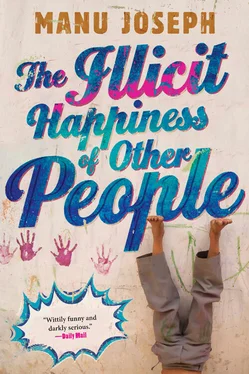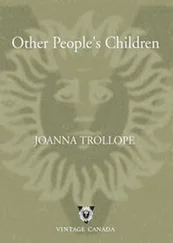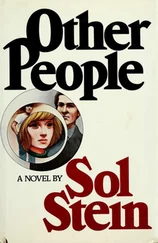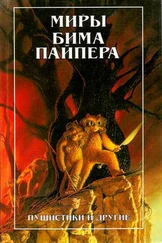What she is actually getting at is a question she has asked many times. Will Ousep Chacko die this way one day? Of natural causes? She would return from church on a quiet Sunday, and she would ring the doorbell and he would not answer. And the door would be broken down, without much damage hopefully, if it were broken along the lock. She imagines Ousep dead, lying on the floor, his eyes wide open. She remembers the advertisement for a sunflower cooking oil — ‘A Gentleman’s Cholesterol Is In The Hands Of His Wife’. But then Ousep Chacko is not a man who can be killed by oil. He does not eat much. He smokes a lot, though, which may have thickened his blood, or thinned his arteries, she always forgets which of the two happens. A man’s heart can also be arranged to stop if he is given a good sudden fright. But she knows it would take a lot to damage the pastoral heart of that man. He is made of red earth and Malabar air.
She walks to the bedroom and has a good look at Ousep’s chair. She sits on it and feels the strain of her body on its legs. This is her only hope, but she has to be very patient, which she is.
She snaps out of her thoughts, asking herself the disturbing question, ‘Mariammo, what are you thinking?’ She is obviously not a murderer, she is just a housewife with exaggerated notions about herself. She does write occasional book reviews under the name ‘Gabriel’ for a women’s weekly, but still she is not a bad person. Also, it is important that Ousep lives, at least for now. If anyone can solve Unni’s death, it is Ousep. He has found something significant, she can tell. But for some reason he is keeping it from her.
The doorbell gives her a jolt. She is surprised to find six women from the other blocks, standing in line like penguins outside her door. They say that the other balconies are full, can they come in? They must be desperate to ring Mariamma’s doorbell. Nobody comes to her house any more. Out of habit, she wonders whether the women are hiding enchanted coins and nails and needles in their saris to plant them in her house and bring doom to her family, as Ousep’s relatives used to once upon a time. But then that is a laughable thought. Nobody is jealous of the Chacko household any more.
The murmur outside grows louder, and it excites the women at the door. They look to their right, at the stairway, which goes up to the gloomy terrace door, but that door is now kept locked at all times after what Unni did. Mariamma asks the women to come in. They rush to the balcony to see what has happened. She does not stand alone any more, she stands in the huddle of women on her balcony like the other women on theirs. Mariamma, finally a host.
They can see the doctor’s daughter now. ‘Bindu or something like that,’ one of the women says. The girl walks down the narrow lane towards her home. She is in a blue pinafore, her hair tied in a red ribbon. She walks with a man who is holding her schoolbag. She smiles at an acquaintance, but she is clearly confused. She looks around at the silent people on the street, who are standing without meeting her eyes. She looks up at the rear balconies of Block A, at the swarms of unmoving women who stare back at her. The girl’s face turns serious. She opens the short gate of her home and sees the whispering strangers in the garden. She begins to walk faster. She stops for a moment when she sees the mass of footwear outside the front door, and she runs in crying.
IN THESE CIRCUMSTANCES, AS he listens to the beatings in the next classroom, Thoma Chacko feels a liquid gloom in his groin. He considers how hard it is to be a bright person. He imagines the sheer length of human life, the many years ahead of him. He is twelve, he has a long way to go. Will Thoma make it? Unni had always tried to reassure him, he even said maths was about to get a lot easier. He said the home minister, who is responsible for happy homes, would soon pass a law changing the value of pi from 3.14159 to just 3, making it easier for all Indian children to calculate the area of a circle. That was what Unni said. But then it was probably a lie, like the many other things he used to say.
Every day, Thoma tries to improve his mind, but he does not possess the Power of Concentration, he is a Wool-gatherer. He stares at the open textbook for hours and is distracted by the pain of the parallelogram, which is slanted for ever. His nails scratch the page to straighten its tired limbs. It affects him, the great arrogance of the Equilateral Triangle, the failed aspiration of the octagon to be a circle, the eternal suffocation of the denominator that has to bear the weight of the unjust numerator, the loneliness of Pluto. And the smallness of Mercury, always a mere dot next to a yellow sun. In this world, there is no respect for Mercury.
Every day, Thoma tries to memorize Interesting Facts but his head is porous. There are only two impressive facts he knows. For some reason they have stuck in his head — the full form of KGB, which is Komitet Gosudarstvennoi Bezopasnosti, and Pele’s real name, which is Edson Arantes do Nascimento. Every day, Thoma hopes a miracle will occur and Mythili Balasubramanium will ask him, ‘Thoma, what does KGB stand for? And I wonder if Pele is his real name.’ But miracles do not happen in Thoma’s life, even though he is Christian.
The thought of his bleak future brings the apparition of a woman to his mind. She has black decaying teeth. It is his future wife, a fate foretold to all the boys who are not very clever. But when he becomes a man he wants a pretty wife. She would have long braided hair, she would be in a red cotton sari, and a tight blue blouse, and she would be somewhat scared of him. On the days of sorrow she would put her nervous head on his shoulder and cry, inaudibly, and just for a few moments, not long. He would never beat her, he would speak to her with respect, he would treat her well, he would never penetrate her.
But would she find Thoma handsome? Is Thoma handsome? Like Unni? It would be really wonderful if there was a canvas tent where a boy could go in unnoticed, probably wearing a mask. Inside, a panel of men and women would ask him to remove his mask. They would inspect him carefully and pass the verdict — handsome, or not handsome. Thoma wishes there was a way he could solve his doubt for ever.
There is a calm, methodical beating in the next room. An occasional thud, like the sound of a dictionary falling on the floor, followed by a brief silence, as if for appreciation. Then another bang, the unmistakable sound of a hand landing on the bent back of a boy who has failed in science or maths, or both. Sometimes the blow is soft, sometimes hard, depending on how much flesh there is on the boy. Thin backs are louder than fat backs but the pain travels longer through the fat. There is now a loud blow, a sad grunt and silence after that. The silence grows longer than expected. It does not end. Thoma is sure that H.M. Dorai is done with the eighth standard and is now walking towards the seventh. The time has come. Thoma stares hard at the desk, he does not look around, but he can sense that the other boys have stopped moving. They wait.
It is improbable that Thoma will be thrashed today because he has not failed in any subject in the monthly tests. Somehow, he usually manages to pass, barely pass, but there is always a chance that something can go wrong. They always pick on something he has written in the tests. Mistakes that he does not fully comprehend. For example, his answer to the question: ‘If the base of the triangle is 3.87 cm and its height is 5.13 cm, can you find its area?’
‘Of course I can,’ Thoma had written.
A slap for that, he does not know why. Then there was the laughably easy question, ‘Which living thing makes its own food?’
Gloria Miss had caned his palms several times. ‘Not Mariamma Chacko, you idiot, not Mariamma Chacko. Which living thing , which living thing ? Is your mother a thing?’
Читать дальше












